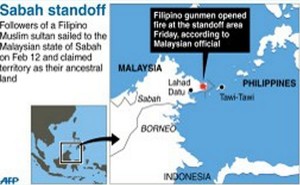MANILA, Philippines—Despite the Philippines’ repeated protests and condemnation of China’s incursions into the West Philippine Sea (South China Sea), a fleet of Chinese surveillance ships has again sailed into the contested waters on “regular patrol missions,” Chinese state media reported Friday.
The Maritime Safety Administration of Hainan said the fleet composed of the Haixun 21, the Haixun 31 and the Haixun 166 left the province’s Sanya port on Thursday for patrols in the disputed waters, according to a report in China’s state-run Xinhua news agency.
“The missions will strengthen the country’s maritime law enforcement capacity and test the patrol team’s rapid response abilities in the South China Sea,” the report said.
The patrols “will monitor maritime traffic safety, investigate maritime accidents, detect pollution, and carry out search and rescue work,” it added.
The patrol is China’s second known ship deployment in the West Philippine Sea. It previously dispatched two ships from the city of Guangzhou in southern China.
China earlier announced fishery patrols in the West Philippine Sea, prompting “strong objection” from the Philippines.
The Department of Foreign Affairs did not immediately issue any statement on Saturday but it had many times in the past condemned similar Chinese patrols as violations of the Philippines’ established maritime borders.
The Philippine government in January went to a United Nations (UN) arbitral panel to put a stop to China’s incursions in the West Philippine Sea. The legal action also seeks to invalidate China’s nine-dash line claim, which places almost all of the West Philippine Sea islands within Chinese territory.
China has refused to participate in the compulsory process, a decision that could boost the Philippines’ case before the ad hoc tribunal, says a world expert on international law.
“If China does not participate, it will not be able to submit evidence and make legal arguments. So it’s really strengthening the Philippines’ chances at the tribunal,” said Tom Ginsburg, a professor of international law at the University of Chicago.
He conceded, however, that while any UN tribunal decision on the case would be binding, China’s compliance would be another matter.


